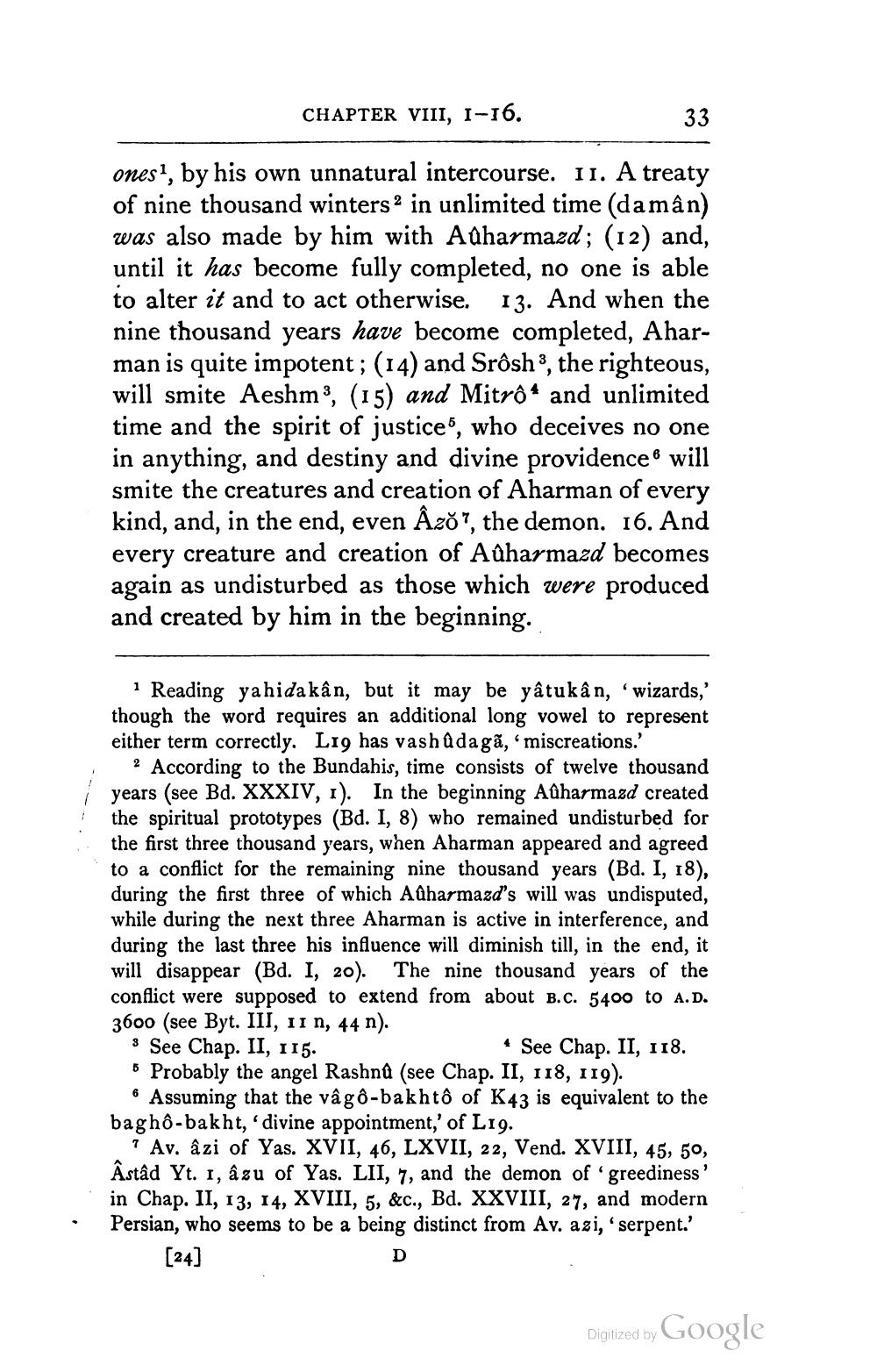________________
CHAPTER VIII, 1-16.
33
ones?, by his own unnatural intercourse. 11. A treaty of nine thousand wintersa in unlimited time (damân) was also made by him with Adharmazd; (12) and, until it has become fully completed, no one is able to alter it and to act otherwise. 13. And when the nine thousand years have become completed, Aharman is quite impotent;(14) and Srôsh 3, the righteous, will smite Aeshm3, (15) and Mitrộ4 and unlimited time and the spirit of justice, who deceives no one in anything, and destiny and divine providence will smite the creatures and creation of Aharman of every kind, and, in the end, even Âzo?, the demon. 16. And every creature and creation of Adharmazd becomes again as undisturbed as those which were produced and created by him in the beginning.
1 Reading yahida kân, but it may be yâtuk ân, wizards,' though the word requires an additional long vowel to represent either term correctly. L19 has vashûda gã, miscreations.'
2 According to the Bundahis, time consists of twelve thousand years (see Bd. XXXIV, 1). In the beginning Allharmand created the spiritual prototypes (Bd. I, 8) who remained undisturbed for the first three thousand years, when Aharman appeared and agreed to a conflict for the remaining nine thousand years (Bd. I, 18), during the first three of which Adharmazd's will was undisputed, while during the next three Aharman is active in interference, and during the last three his influence will diminish till, in the end, it will disappear (Bd. I, 20). The nine thousand years of the conflict were supposed to extend from about B.C. 5400 to A.D. 3600 (see Byt. III, 11 n, 44 n). 3 See Chap. II, 115.
See Chap. II, 118. 5 Probably the angel Rashnů (see Chap. II, 118, 119).
6 Assuming that the vâgô-bakhtô of K43 is equivalent to the baghô-bakht, 'divine appointment,' of L19.
? Av. âzi of Yas. XVII, 46, LXVII, 22, Vend. XVIII, 45, 50, Astâd Yt. I, âzu of Yas. LII, 7, and the demon of 'greediness' in Chap. II, 13, 14, XVIII, 5, &c., Bd. XXVIII, 27, and modern Persian, who seems to be a being distinct from Av. azi, 'serpent.'
[24]
Digitized by Google




